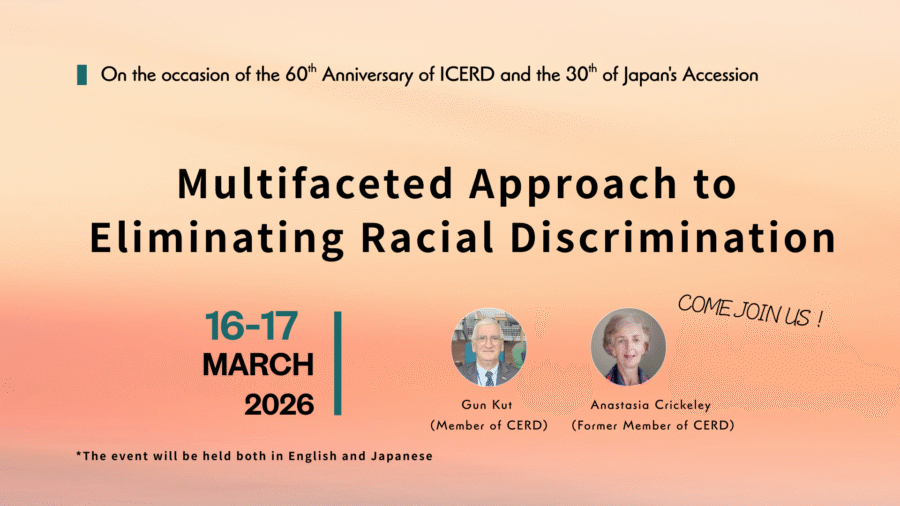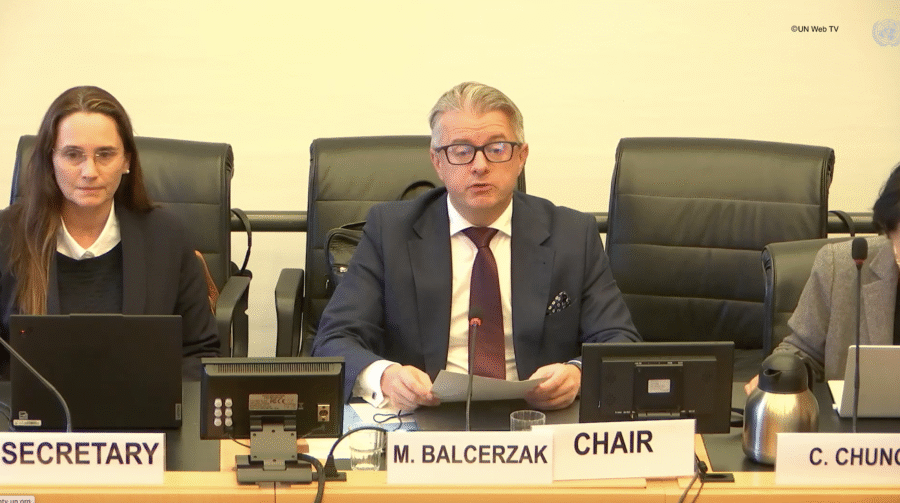Recognition of past tragedies of minorities: Sinti and Roma, ethnic Koreans in Japan (HRC28, 2015, OS)
March 21, 2015
IMADR statement on “Recognition of past tragedies of minorities: Sinti and Roma, ethnic Koreans in Japan” at the 28th session of the Human Rights Council. Whole text can be read below or downloaded here. ![]()
———
IMADR Oral Statement: 28th session of the Human Rights Council
Debate on the state of racial discrimination worldwide
20 March 2015
Thank you Mr. President,
We appreciate this debate in commemoration of the International Day for the Elimination of Racial Discrimination. “Recognition” of historical tragedies is essential to combat racial discrimination. Many minority and indigenous communities in the world continue to face stigmatisation, which too often ignores past atrocities against them.
Sinti and Roma people are Europe’s largest ethnic minority, and they have been experiencing long standing racial discrimination. The worst atrocity committed against Sinti and Roma in the last century was the genocide by Nazi Germany. The estimated number of Sinti and Roma victims is 500,000 in Nazi-occupied Europe. Regrettably, this historical tragedy of Sinti and Roma is not sufficiently acknowledged in many societies in Europe. Our partner organisation, Central Council of German Sinti and Roma, holds a permanent exhibition about the Holocaust of Sinti and Roma by the Nazi regime. The exhibition aims to promote a greater recognition of the past, combat ignorance and negative stereotypes against Sinti and Roma which are still persistent today.
Ethnic Koreans in Japan has been subject to racial discrimination for generations which derives from the Japanese colonisation from 1910 to 1945. In the event of the Great Kanto earthquake in 1923, around 6,000 ethnic Koreans were massacred by soldiers, police and civilians as a result of a spread of false rumours. Investigation into the mass killings was not conducted sufficiently and most perpetrators were not prosecuted, which resulted in inadequate historical documentation and teaching, and a lack of recognition of the massacre among the majority population in Japan. Today, there is a worrying trend of denying this historical tragedy of the Japan’s largest minority group. Such insufficient acknowledgement and denial of the event have contributed to the resurgence of direct racial discrimination against ethnic Koreans, particularly in the forms of hate speech and incitement to killings.
These examples highlight the need for States to recognise historical tragedies and promote fact-based teachings to eliminate racial discrimination and prevent recurrence of atrocities through cooperation with civil societies.
Thank you Mr. President.





